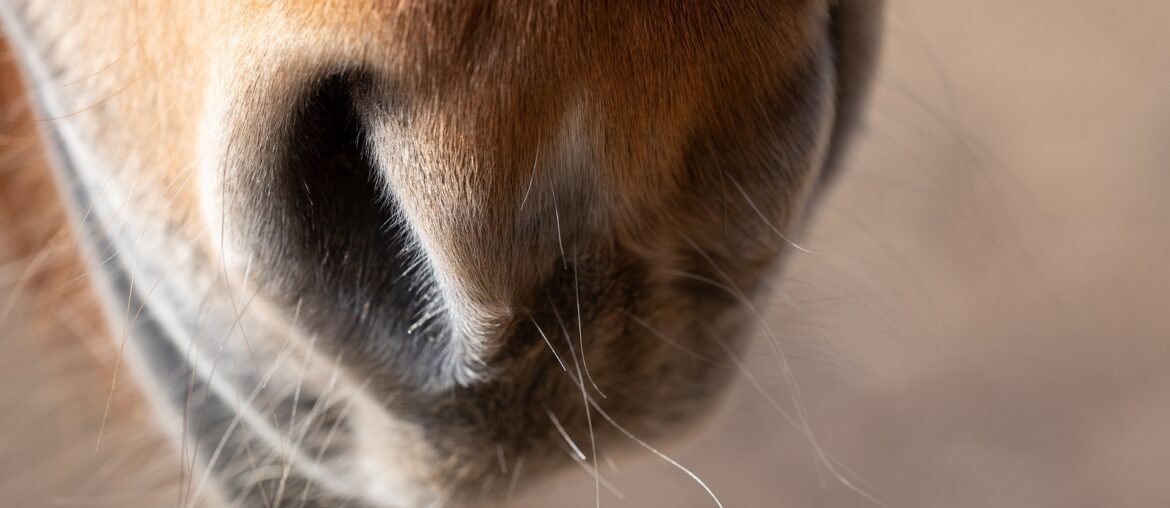Do they have a purpose?
Whiskers are long, stiff hairs that grow on your horse’s face, typically around the nostrils, lips and eyes. They play an important role in sensory awareness, sending messages at over 250mph to the brain to help your horse navigate his way around. They receive a much richer blood and nerve supply than regular hairs which makes them super sensitive to even the most subtle of touch.
The location of your horse’s eyes mean that he has various blind spots in front and around his nose. This is why some whiskers are longer than others. They determine the safe distance to objects, which around the muzzle will give them information about food and help them navigate in the dark, whilst those around the eyes will protect them by initiating blinking in response to the touch of a fly or other object.
Did you know?
- Whiskers are the first hairs to grow during development
- Their correct term is vibrissae
- Whiskers shed once they are mature and new ones grow in their place
- Whiskers themselves do not have nerves
- Hairs under the jaw are not whiskers
- Horses usually have 7 vibrissae around each eye
Inner ear hairs also provide important sensory information, and protect the delicate skin and ear structures from the weather as well as foreign objects. Traditionally ear hair and whiskers have been trimmed for showing and other activities for cosmetic purposes to create a ‘smarter’ appearance, however this can cause your horse stress, confusion, and increased risk of injury.
As of July 2021, the FEI has banned the trimming of whiskers around the mouth and eyes in an important move to safeguard equine welfare, with the British governing bodies following suit. This means that any horse that has had sensory hairs removed other than for veterinary purposes will be disqualified. This, however, does not currently apply to the trimming of ear hairs.
Whether you compete under governing body rules or enjoy your horse for pleasure, support his natural behaviour and leave his whiskers untrimmed for a happy, healthy horse.

